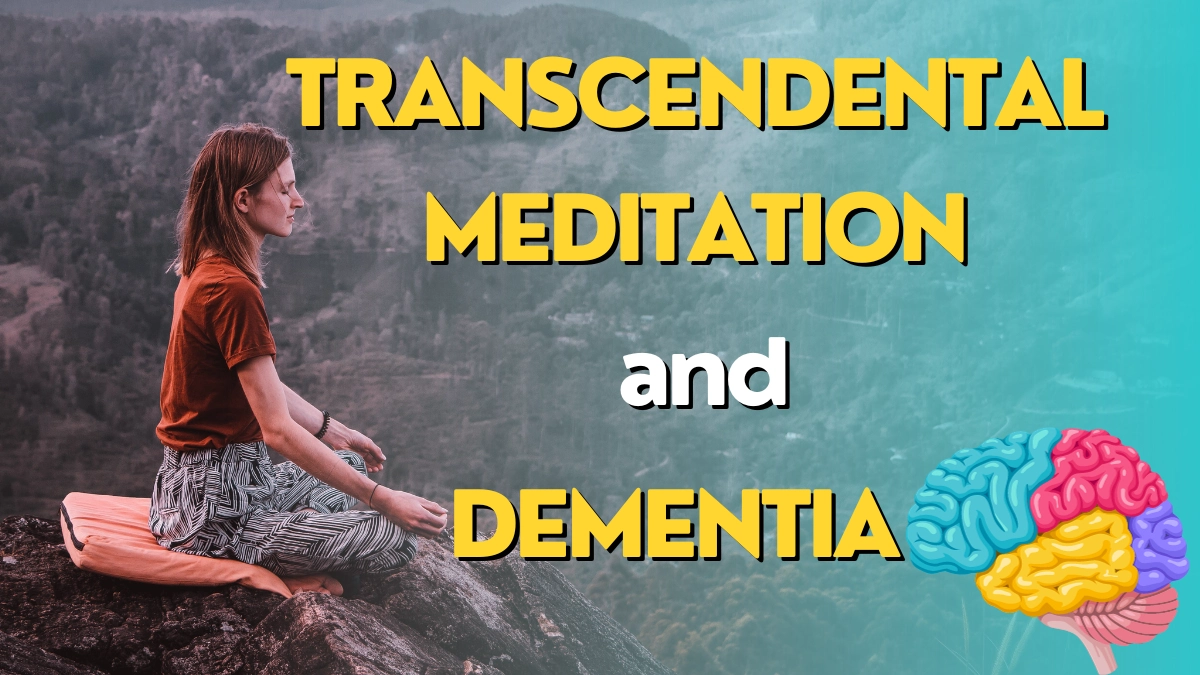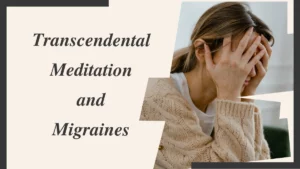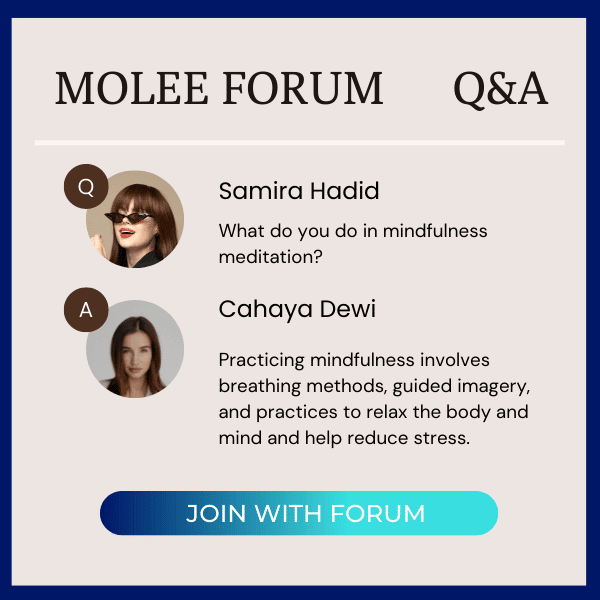Table of Contents
- Dementia
- Meditation and Aging
- Transcendental Meditation
- Neurological Benefits of Transcendental Meditation
- Transcendental Meditation and Alzheimer’s
- Clinical Studies on Transcendental Meditation and Dementia, Alziemer’s Disease
- Implementing Transcendental Meditation in Dementia Care
- Final Thoughts
- FAQs on Transcendental Meditation and Dementia
- What’s the link between Transcendental Meditation and the risk of Alzheimer’s?
- How does Transcendental Meditation affect cognitive performance in dementia?
- How can I protect my brain from dementia?
- Do brain exercises prevent dementia?
- Can Transcendental Meditation target specific parts of the brain linked to Alzheimer’s?
- What are the effects of Transcendental Meditation on Alzheimer’s disease and dementia?
Are you seeking a holistic approach to combat the challenges of dementia and Alzheimer’s disease? Look no further.
In a world where the connection between mind and body holds increasing significance, the relationship between Transcendental Meditation and dementia emerges as a beacon of hope.
This article dives deep into the profound impact of Transcendental Meditation on these cognitive conditions. We’ll explore the different types of dementia, explore how this ancient practice offers a potential remedy, and delve into scientific studies validating its efficacy.
Are you ready to explore a path that transcends conventional treatments, offering newfound possibilities for those battling cognitive decline?
Dementia
Dementia is a collective term for progressive neurological disorders that affect memory, thinking, behavior, and emotion. Symptoms may include loss of memory, difficulty in finding the right words or understanding what people are saying, difficulty in performing previously routine tasks, and personality and mood changes.
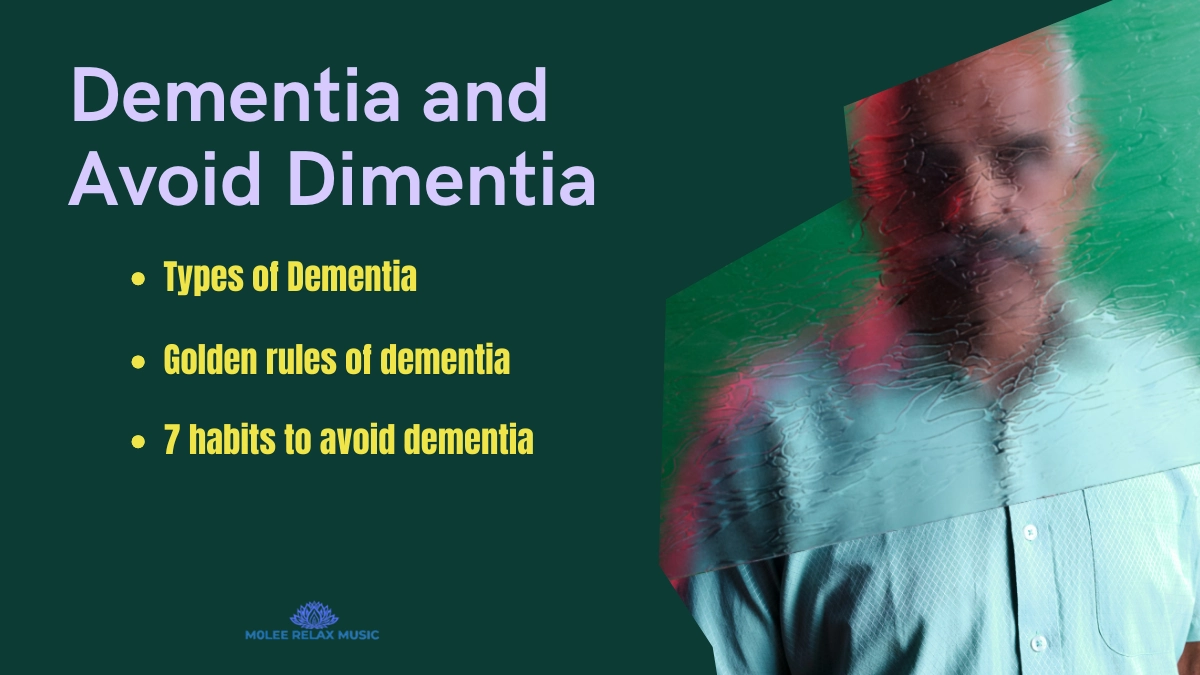
Types of Dementia
- Alzheimer’s Disease: The most common type of dementia.
- Vascular Dementia: Caused by reduced blood flow to the brain, often after a stroke.
- Lewy Body Dementia: Characterized by abnormal protein deposits in the brain called Lewy bodies.
- Frontotemporal Dementia: Involves the frontal and temporal lobes of the brain and affects personality, behavior, and language.
What is the number one trigger for dementia behavior?
Stress is often the most significant trigger for behaviors associated with dementia. It can result from environmental factors, changes in routine, or personal discomfort.
Read our article on TM and Diabetes Relief from here.
What are the three golden rules of dementia?
- Don’t Argue: It can increase stress and confusion for the person with dementia.
- Don’t Reason: Abstract thinking may be diminished, making reason less effective.
- Don’t Shame: Maintaining dignity is essential. Shaming can lead to withdrawal and negative emotions.
What are the 7 habits to avoid dementia?
Maintaining certain habits can reduce the risk of developing dementia:
- Regular physical exercise
- Keeping mentally active
- Eating a healthy diet
- Staying socially engaged
- Managing stress
- Ensuring quality sleep
- Regular medical check-ups
What is the one thing to avoid dementia?
There is no single guaranteed way to avoid dementia, but a heart-healthy lifestyle can significantly reduce the risk. This includes regular exercise, a balanced diet, and controlling blood pressure and cholesterol.
What makes dementia worse?
Several factors can exacerbate dementia symptoms:
- Medications that affect the central nervous system
- Infections and illness
- Poor sleep hygiene
- Inadequate nutrition
- Lack of regular activity
- Social isolation and loneliness
- Stressful life events and environmental changes
Meditation and Aging
Aging individuals often seek ways to maintain and enhance cognitive function as they get older. Meditation practices, particularly those like Transcendental Meditation, have shown promise in mitigating the effects of aging on the brain.

Kirtan Kriya Meditation
Kirtan Kriya Meditation, a practice within the Kundalini Yoga tradition, incorporates singing, movement, and breathing techniques. Research detailed in a study published in PMC highlights its positive impact on cognitive functions, especially in the realm of memory improvement and emotional regulation for older adults.
Brain Boosting Benefits of Meditation
Meditation offers a plethora of benefits that are particularly advantageous as individuals age. These include enhanced attention, increased mental flexibility, and better memory retention. An article from Nature discusses how expert meditators exhibit reduced age-associated brain changes, indicating that regular meditation may contribute to a healthier and more resilient brain.
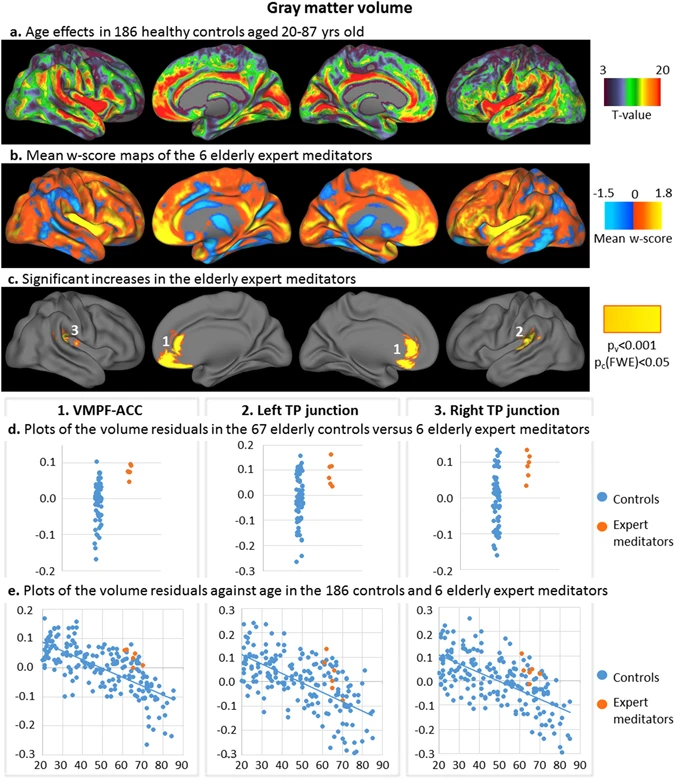
How Meditation Can Slow Alzheimer’s?
Meditation not only appears to slow general cognitive decline seen in aging populations but may also be particularly beneficial in individuals with Alzheimer’s disease and mild cognitive impairment (MCI). According to research from PMC, meditation practices may help offset neurodegenerative diseases such as Alzheimer’s by maintaining cognitive functioning and reducing stress-related disorders.
Transcendental Meditation
Transcendental Meditation (TM) is a form of silent mantra meditation developed by Maharishi Mahesh Yogi. It is meditated for 15-20 minutes twice daily while sitting comfortably with the eyes closed. During this meditation, practitioners use a specific sound or mantra, which is meant to help the individual transcend ordinary thinking and reach a state of pure consciousness.
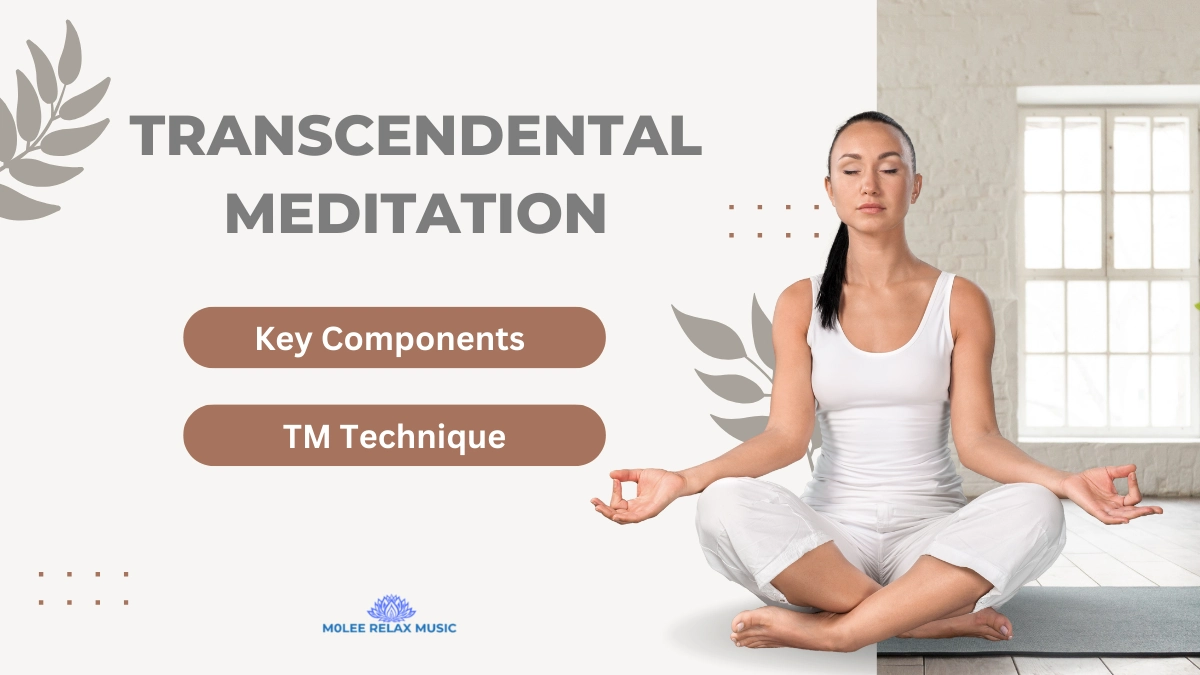
Key components of TM:
- Mantra: A specific sound unique to the individual, given by a certified TM teacher.
- Technique: Effortless and simple, as taught by a qualified instructor.
- Regular Practice: Recommended twice a day, once in the morning and once in the afternoon/evening.
Transcendental meditation technique is distinct from other forms of meditation in its effortless approach and standardized teaching method. It doesn’t require concentration, controlled breathing, or contemplation. Instead, it emphasizes a natural settling down of the mind to its state of least excitation.
The practice has been promoted for its potential benefits on mental health, with studies suggesting improvements in stress, anxiety, and cognitive function. It has also been studied for its potential impact on caregivers of individuals with dementia, showing promise in reducing the stress associated with care-giving.
Practical steps to get started with the TM technique:
- Find a Certified Teacher: TM is traditionally learned in person from a certified TM teacher.
- Initial Instruction: Teachers provide personalized mantras and guidance on the technique.
- Follow-Up Support: Ongoing check-ins help ensure the practice is done correctly.
Neurological Benefits of Transcendental Meditation
Transcendental Meditation (TM) has been studied for its potential to support neurological health, particularly concerning dementia. Research indicates this practice may benefit brain function, reduce stress, and enhance cognitive abilities.
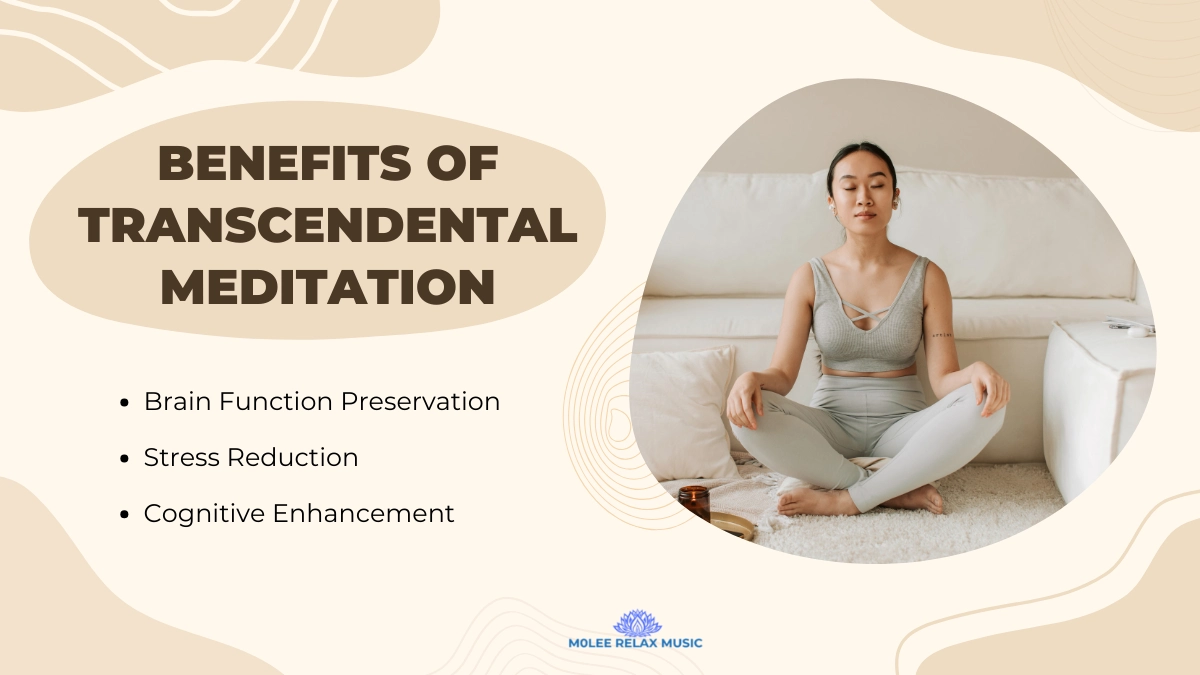
Brain Function Preservation
Studies suggest that regular practice of TM may help in preserving brain function as individuals age. It has been associated with maintaining cerebral blood flow, which is crucial for preventing cognitive decline and conditions like Alzheimer’s disease.
Stress Reduction
TM’s role in stress reduction is well-documented; by eliciting the body’s relaxation response, TM has been shown to lower the physical and psychological impacts of stress. This reduction is beneficial for neurological health, as chronic stress can contribute to neuronal damage and cognitive impairment.
Cognitive Enhancement
Engaging in TM is linked with improvements in various aspects of cognition. Findings point to TM’s ability to improve memory, reaction time, and executive function, which are often compromised in dementia patients. By supporting overall cognitive function, TM can contribute to a higher quality of life for individuals facing the challenges of cognitive decline.
Transcendental Meditation and Alzheimer’s
In the context of Alzheimer’s disease, various interventions are considered to maintain cognitive functions, of which Transcendental Meditation (TM) has shown promise in supporting brain health and potentially mitigating cognitive decline associated with the condition.
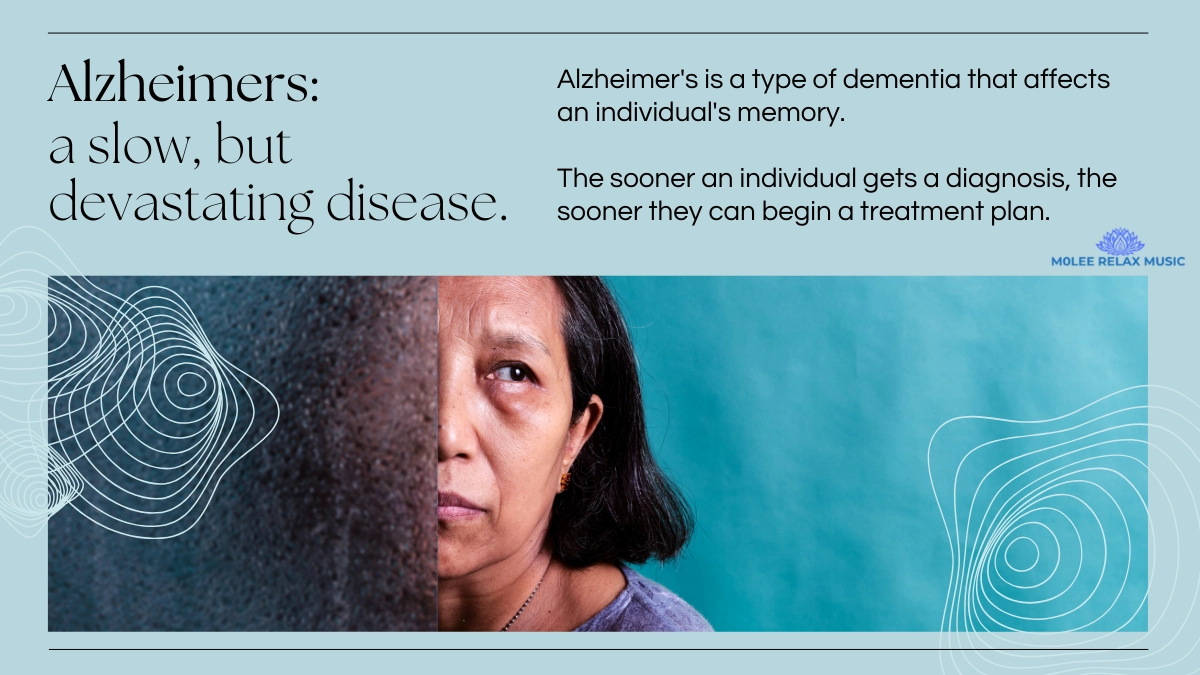
Alzheimer’s and Healthy Brain Functioning
Alzheimer’s disease profoundly impairs healthy brain functioning, leading to a decline in memory, reasoning, and communication abilities. Transcendental Meditation appears to support brain health by enhancing neural plasticity and cognitive reserve, which are crucial in the fight against neurodegenerative diseases.
Alzheimer’s vs Aging
While both aging and Alzheimer’s can affect cognitive function, Alzheimer’s does so at a more accelerated and severe rate. Transcendental Meditation may help offset normal age-related cognitive decline and could be especially beneficial for those at risk of or already experiencing early symptoms of Alzheimer’s.
Let’s see how the behavior differs in Aging and Alzheimer’s disease.
| Changes in Behavior | Alzheimer’s Symptoms | Age-Related Changes |
|---|---|---|
| Memory Decline | Unusual forgetfulness, repetitive questioning | Gradual increase in forgetfulness |
| Task Completion | Struggle with familiar tasks (grocery shopping, food prep) | Needing help with new or unfamiliar tasks (tech usage) |
| Problem-Solving | Difficulty following instructions, managing bills | Slower response, multitasking challenges |
| Vision Issues | Spatial awareness problems | Reduced clarity of distant vision |
| Time Management | Confusion with days, disorientation in new places | Brief forgetfulness of entering the room’s purpose |
| Misplacing Items | Misplacement in odd spots, difficulty retracing steps | Momentary misplacement, swift recall |
| Communication | Losing track in conversation, repeating sentences | Occasional word-finding difficulty, focus in discussions |
| Decision Making | Prolonged unnecessary tasks, grooming neglect | Slower decision-making pace |
| Mood Changes | Feelings of irritability, confusion, anxiety, depression | Occasional weariness, irritability with routine disruptions |
| Social Behavior | Withdrawal from previously enjoyed social activities | Fatigue or weariness post-social interactions |
Women and Alzheimer’s disease
Women have a higher risk of developing Alzheimer’s than men, with lifestyle and genetic factors contributing to this discrepancy. Almost two-thirds of Americans with Alzheimer’s are women, and the medical consensus is that while there is currently no cure for Alzheimer’s disease, medication treatments typically offer minimal benefits and can be accompanied by significant side effects.
Incorporating Transcendental Meditation into their daily routine could be an empowering tool for women to enhance their mental resilience and potentially reduce the risk of cognitive decline.
What is the Bredesen Protocol?
Dr. Dale Bredesen is a researcher and practitioner in the field of neurodegenerative diseases, known for developing the Bredesen Protocol, which is a comprehensive, personalized program aiming to prevent and reverse the cognitive decline associated with Alzheimer’s disease.
His approach involves identifying and addressing various potential contributors to the disease, such as nutritional deficiencies, hormonal imbalances, and inflammation, with the analogy of fixing a roof with 36 factors.
The Bredesen Protocol is a comprehensive approach to preventing and reversing cognitive decline. This multi-faceted protocol includes dietary changes, exercise, and brain stimulation, and could be complemented by Transcendental Meditation to amplify its neuroprotective effects.
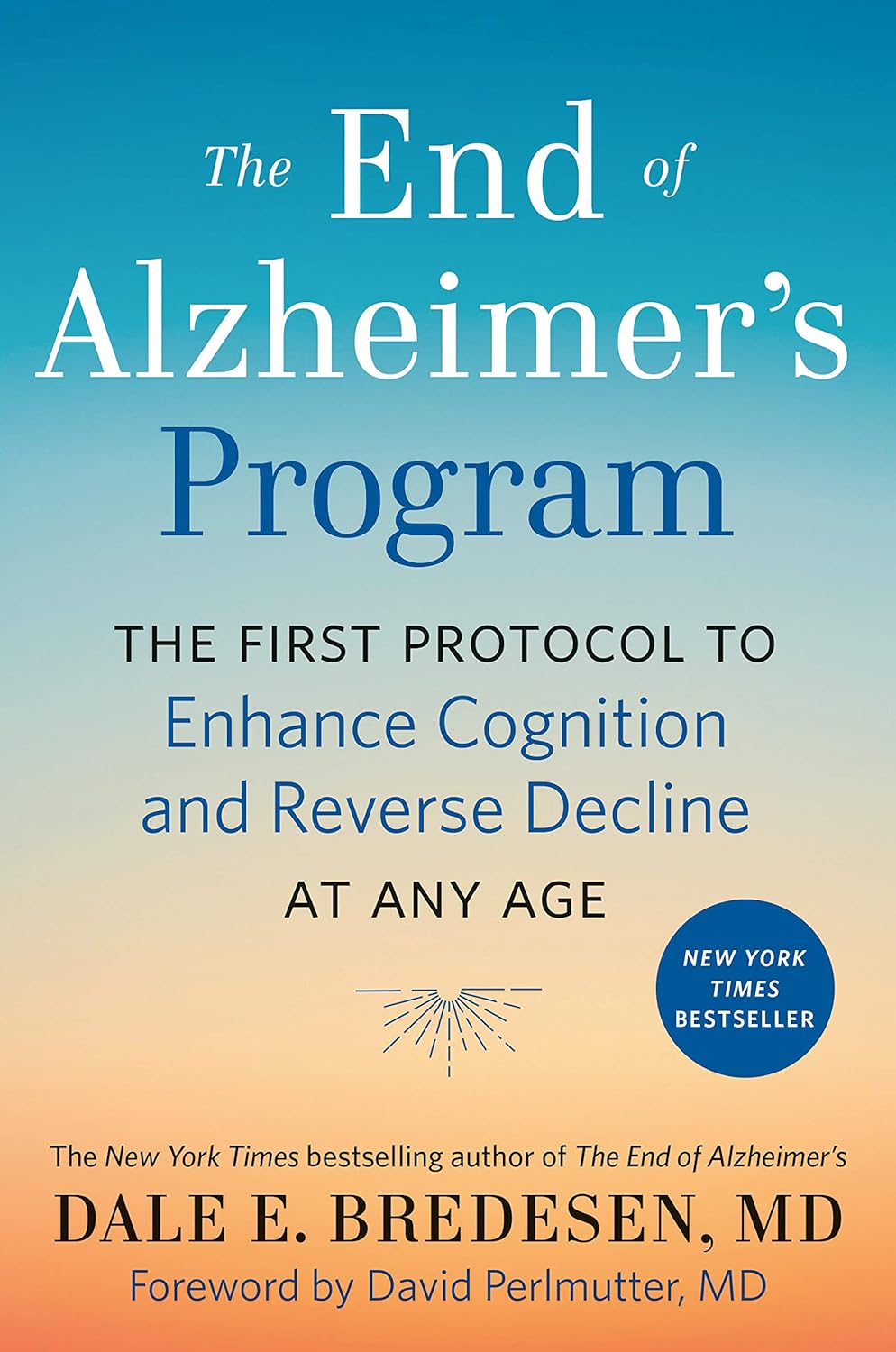
The End of Alzheimer’s Program
- By Dr. Dale Bredesen
- The New York Times Best Selling Autor
However, it’s important to note that the efficacy of the Bredesen Protocol has been met with skepticism by some in the medical community, as there is limited peer-reviewed scientific data to conclusively support its claims.
Incorporating Transcendental Meditation into the Bredesen Protocol
By incorporating Transcendental Meditation into the Bredesen Protocol, individuals may experience improvements in stress reduction, brain function, and overall wellness. The effects of transcendental meditation can enhance cognition could make it a potent component of a holistic approach to Alzheimer’s prevention and management.
Clinical Studies on Transcendental Meditation and Dementia, Alziemer’s Disease
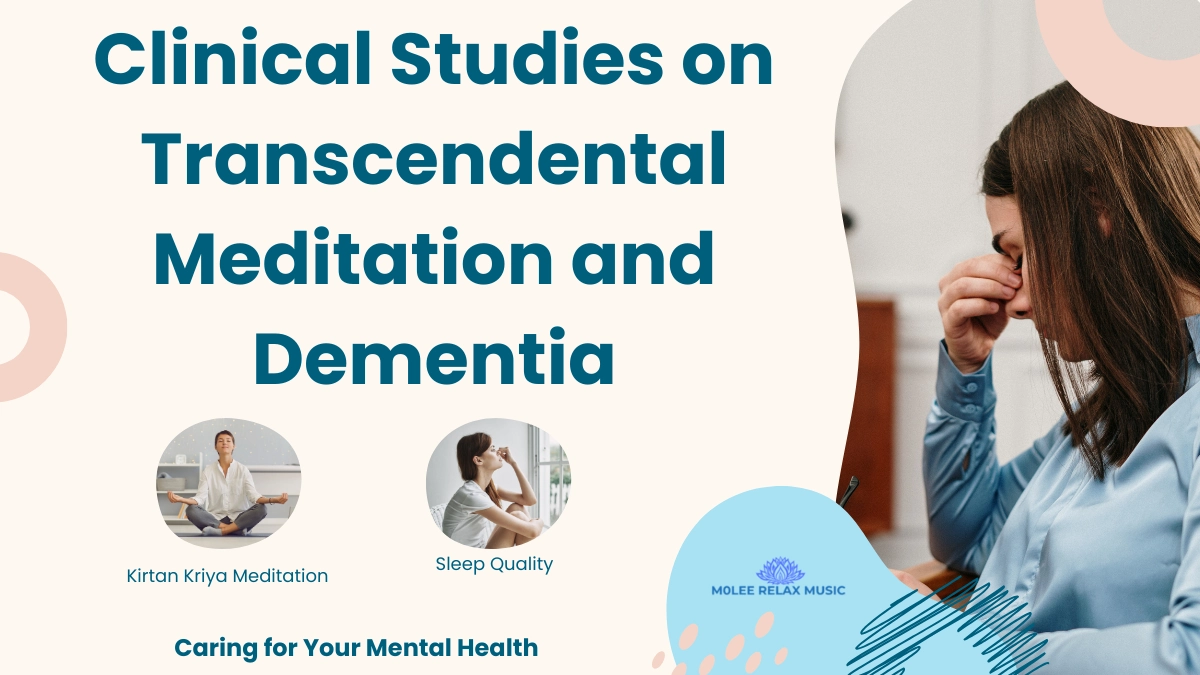
Clinical studies have investigated the efficacy of Transcendental Meditation (TM) in improving the mental health and cognitive function of dementia caregivers.
1.Transcendental Meditation for the improvement of health and well-being in community-dwelling dementia caregivers
The background of this study is to evaluate the impact of Transcendental Meditation (TM) on reducing psychological stress, enhancing quality of life, positively affecting mood, and improving cognitive function among caregivers of individuals with dementia.
This was a randomized controlled trial where dementia caregivers were assigned to either a 12-week Transcendental Meditation program or a wait-list control group. Outcome measures included assessments of stress, quality of life, mood, cognitive function, and feasibility.
The TM group of the 17 caregivers showed a notable increase in cognitive response speed, with potential yet non-significant improvements in stress and mood. About 63% experienced mild and transient adverse events related to TM.
Preliminary evidence suggests TM could benefit dementia caregivers’ cognitive function and well-being, but further research is needed to confirm its effectiveness due to the limited scope of this pilot study.
Read our article on TM and Latest Research and know how the TM technique makes our lives better.
2. Effects of Meditation and Music-Listening on Blood Biomarkers of Cellular Aging and Alzheimer’s Disease in Adults with Subjective Cognitive Decline
The idea was to measure the telomere length, telomerase activity, amyloid-β levels, cognition, stress, mood, and quality of life of the participants that help to predict cognitive decline and dementia. 53 blood biomarkers were selected. These participants were involved in either a 12-week Kirtan Kriya meditation or a music listening program randomly for 12 minutes a day.
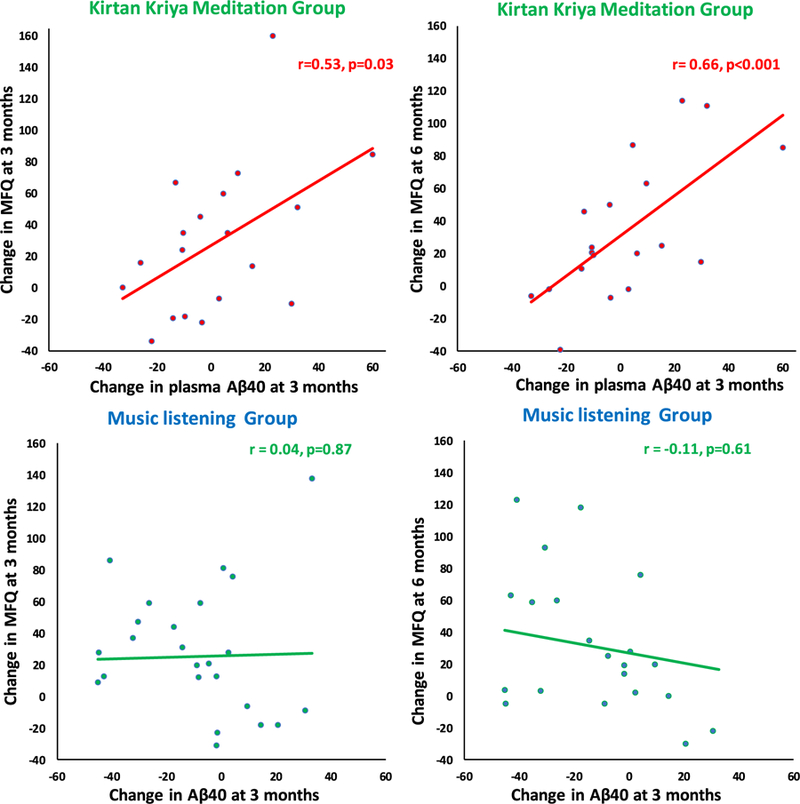
The meditation group showed a more significant increase in amyloid-β40. Both groups experienced a rise in telomerase activity, especially those who practiced more and had lower initial levels. Improvements in cognition, stress, mood, sleep quality, and quality of life were greater in the meditation group, with certain biomarker increases correlating with these improvements.
Mind-body practices like meditation may influence key biomarkers and are linked to better cognitive and psychosocial outcomes.
References:
- Leach MJ, Francis A, Ziaian T. Transcendental Meditation for the improvement of health and wellbeing in community-dwelling dementia caregivers [TRANSCENDENT]: a randomized wait-list controlled trial. BMC Complement Altern Med. 2015 May 8;15:145. doi: 10.1186/s12906-015-0666-8. PMID: 25952550; PMCID: PMC4429365.
- Innes KE, Selfe TK, Brundage K, Montgomery C, Wen S, Kandati S, Bowles H, Khalsa DS, Huysmans Z. Effects of Meditation and Music-Listening on Blood Biomarkers of Cellular Aging and Alzheimer’s Disease in Adults with Subjective Cognitive Decline: An Exploratory Randomized Clinical Trial. J Alzheimers Dis. 2018;66(3):947-970. doi: 10.3233/JAD-180164. PMID: 30320574; PMCID: PMC6388631.
Implementing Transcendental Meditation in Dementia Care
TM shows potential in reducing stress and improving cognitive function for dementia patients and caregivers. Creating a TM program for dementia care that is simple, flexible, and can be adjusted as dementia progresses. Integrate TM into caregivers’ routines to help manage stress.
Key Components:
- Simplicity: Easy for those with cognitive challenges.
- Adaptability: Modifiable for different dementia stages.
- Integration: Consistent practice within care schedules.
When training TM facilitators in dementia care it needs to emphasize empathy and effective communication. Providing ongoing support and resources to maintain TM practice is also important. Ensuring cultural relevance and acceptance also play a vital role when tailoring TM to diverse populations.
Read our full article on Transcendental Meditation and Insomnia from here.
Final Thoughts
We’ve seen how Transcendental Meditation might help people dealing with memory problems like dementia. By looking at different types of dementia and what science tells us, we’ve found that meditation could be a useful way to ease symptoms and maybe even slow down Alzheimer’s disease.
This journey shows us that paying attention to our minds through mindfulness meditation and transcendental meditation might offer hope for those facing memory issues. It’s like finding a new way to help alongside the usual treatments.
FAQs on Transcendental Meditation and Dementia
What’s the link between Transcendental Meditation and the risk of Alzheimer’s?
Studies suggest that regular Transcendental Meditation might potentially lower the risk of Alzheimer’s disease. This practice promotes relaxation, reducing stress and inflammation, factors that could contribute to cognitive decline.
How does Transcendental Meditation affect cognitive performance in dementia?
Transcendental Meditation has shown promise in potentially enhancing cognitive function. By calming the mind and reducing stress, it may positively impact memory, attention, and overall cognitive abilities, potentially offering support against the progression of dementia.
How can I protect my brain from dementia?
Stay mentally active with puzzles, learning new skills, and socializing. Maintain a balanced diet, exercise regularly, manage stress, and consider practices like Transcendental Meditation for potential brain health benefits.
Do brain exercises prevent dementia?
Brain exercises may help maintain cognitive function and could potentially reduce the risk or delay the onset of dementia. However, they alone cannot guarantee prevention. A healthy lifestyle, including mental challenges, is essential for overall brain health.
Can Transcendental Meditation target specific parts of the brain linked to Alzheimer’s?
Research indicates that Transcendental Meditation can influence various brain regions, potentially impacting those associated with memory and cognitive function. While its precise effects on specific brain areas related to Alzheimer’s remain under study, it shows promise in holistic brain health.
What are the effects of Transcendental Meditation on Alzheimer’s disease and dementia?
Transcendental Meditation presents potential benefits for individuals dealing with Alzheimer’s and dementia. This practice may help manage stress levels, improve cognitive function, and contribute to overall well-being, potentially offering a supportive role in coping with the conditions. However, further research is ongoing to explore its full effects.


